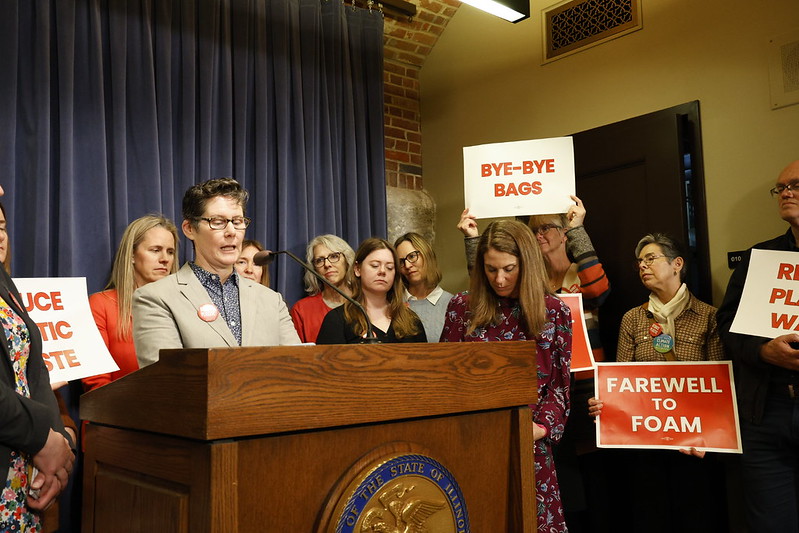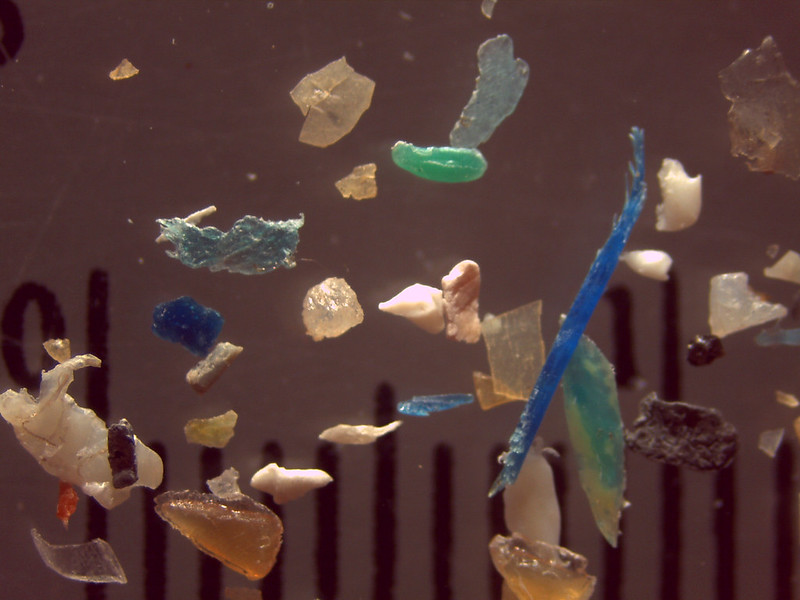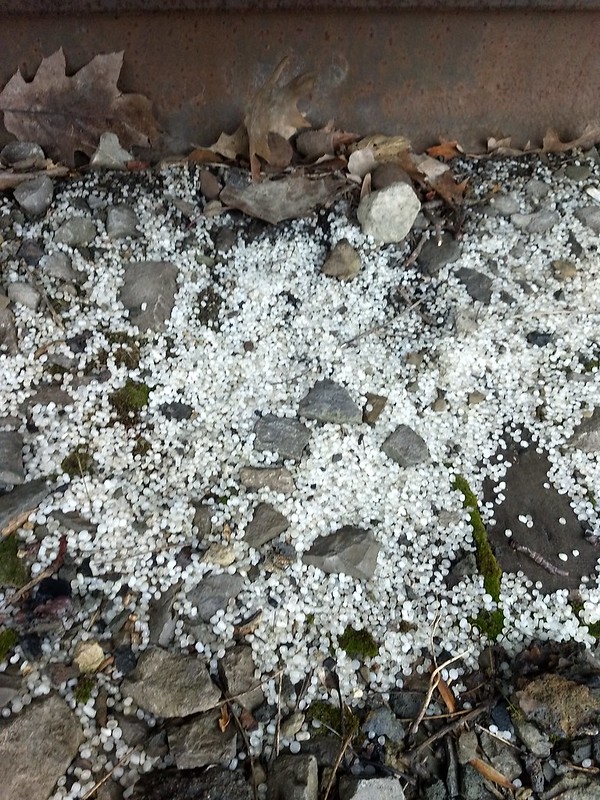Illinoisans are sending a clear message to their representatives: keep plastic out of the Great Lakes and our drinking water. This year, they’ve sent over 1,200 messages (and counting!) to their state representatives. Over 30 Great Lakes scientists also recently joined the call.

In its 2025 spring session, the Illinois state legislature is considering several important bills. In March, measures that would phase out both single-use foam foodware and plastic bags passed a key Illinois Senate committee. The Alliance and our partners are in Springfield and continuing to push these bills forward.
In addition, the Alliance is also working hard on bills to prevent dangerous pre-production plastic pellet pollution, protect our waterways from microfibers, and skip unnecessary single-use plastic foodware utensils.
The Alliance’s Senior Policy Advisor, Andrea Densham, has testified in Illinois Senate and House committees and spoke at a recent press conference at the State Capital with hundreds of advocates working to ensure these critically important bills pass. We’re securing protections for the Great Lakes and drinking water and bringing Alliance supporters’ letters directly to our Illinois General Assembly members.
At a time when the federal government is cutting back on protections for our water, states and local communities can step up in important ways to protect our health and environment.

Plastics never really go away
Plastic pollution is a highly pervasive threat to the health of our environment and all Illinoisans. Plastic never fully goes away. Instead, it breaks up into toxic microplastics that infiltrate our waterways. Researchers have found microplastics in the food we eat, the water we drink, and the air we breathe. The most effective way to reduce microplastics is to stop plastic from entering our environment in the first place.
Illinois bills that can make a difference
Bills to address some of the biggest sources of Great Lakes microplastic are under consideration.
Eliminating wasteful single-use plastic – Foam Food Ware – SB1531, Sen. Laura Fine
Plastic foam, most commonly known as Styrofoam, is the third most common litter item collected during our Adopt-a-Beach cleanups. Foam is exceptionally hard to recycle and breaks down easily into toxic environmental microplastic particles. This critical bill reduces plastic pollution at the source by restricting the sale and distribution of foam food containers.
Eliminating wasteful single-use plastic – Plastic Bags – SB1872, Sen. Cristina Castro
A single-use plastic shopping bag is used for just 12 minutes yet can persist for 10 to 20 years as it slowly breaks apart into microplastics. Plastic bags can harm the environment, wildlife, and people. Fish and other aquatic wildlife can ingest pieces of plastic bags. This important bill would reduce plastic film bags at checkout and establish a statewide solution to the growing plastic bag challenge.
Protecting our waterways from microfibers – HB1370/ SB30, Rep. Daniel Didech / Sen. Julie A. Morrison
The most common microplastics in the environment are microfibers, tiny thread-like pieces of plastic shed from synthetic textiles like polyester, rayon, nylon, acrylic, and fleece. Just a single load of laundry can release up to 18 million microfibers. Wastewater treatment plants cannot filter out the microfibers entirely, so they end up in our environment and our water. This bill will address this problem by adding a microfiber filter to new washing machines by 2030, much like lint filters in dryers, preventing millions of microfibers from becoming pollution. The bill is supported by over 30 Great Lakes scientists who study the issue.

Preventing Dangerous Pre-production Plastic Pellet Pollution – HB3278, Rep. Joyce Mason
Pre-production plastic pellets, sometimes called nurdles, often spill from manufacturing facilities during storage, movement, or plant operations. These pellets, which contain high concentrations of toxic petrochemicals, have been found in terrestrial, freshwater, and marine ecosystems, impacting our drinking water sources. HB 3278 is part of the first step in advancing a solution by instructing Illinois EPA to develop a plan and set of requirements to control plastic pellets and other preproduction plastic materials and prevent them from entering the environment and contaminating our drinking water.
Skip the Stuff – HB1600, Rep. Jennifer Gong-Gershowitz
In order to reduce single-use plastic pollution, this bill provides that take-out food delivery services provide customers disposable food ware upon request only.
What you can do
- If you live in Illinois, tell your representatives: protect our water by passing these bills.
- If you live in other Great Lakes states, your state and local elected officials need to hear from you. Our Plastic Free Great Lakes Toolkit provides you the resources to write op-ed in local news outlets, reach out to your elected officials, and increase support from your neighbors and friends.
